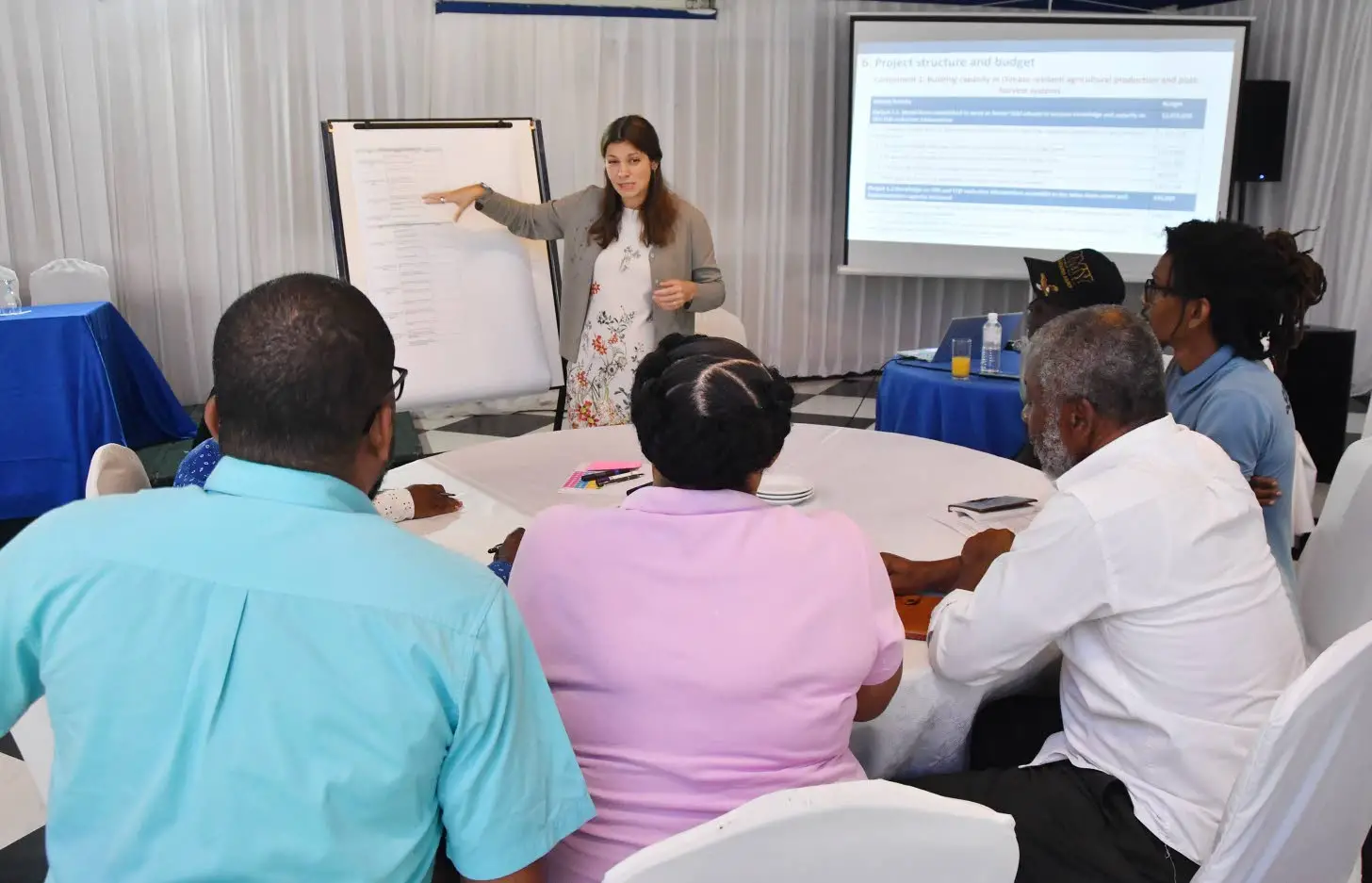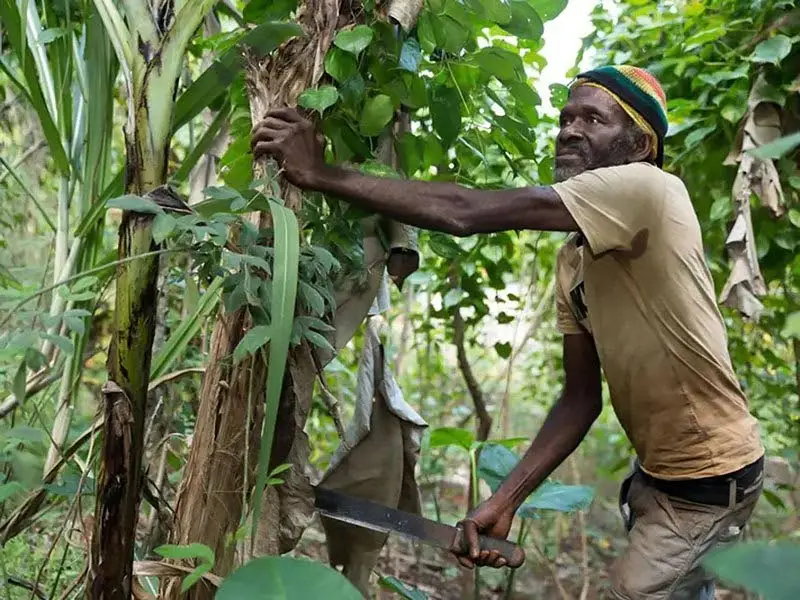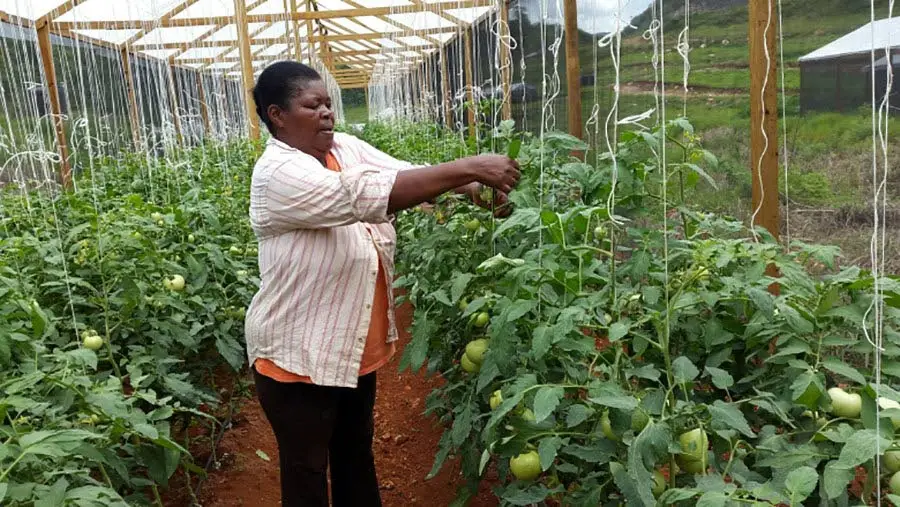
ADAPT Jamaica aims to future-proof farming in the face of climate change
AS rising temperatures and shifting rainfall patterns threaten the viability of traditional crops in Jamaica, a US$30-million ADAPT Jamaica project — formally titled Enhancing Climate Change Resilience of Vulnerable Smallholders in Central Jamaica — is setting out to change how and where Jamaicans farm.
“There’s going to be a geographical shift in where you should be cropping, and that needs to be very important in terms of decision-making. What type of crop should you be putting in place, and where should it be cropping,” Jacinto Buenfil, policy officer for environment and climate change at the United Nations Food and Agriculture Organisation (FAO), told a validation workshop last week at Terra Nova All-Suite Hotel in St Andrew.
According to technical experts involved in the project, rising temperatures will reduce the number of areas suitable for cultivating crops such as sweet potatoes, yams, Irish potatoes, onions, cabbage, and lettuce, which are sensitive to heat and require specific climatic conditions.
Meanwhile, crops such as mangoes and cucumbers, which can withstand higher temperatures, are expected to thrive in more regions. A similar trend is forecast for tomatoes, with high-elevation varieties losing ground while lowland tomatoes become more viable.
ADAPT Jamaica has mapped new crop zones based on projected climate conditions. Farmers will receive guidance on what to grow and where, helping them adjust their production to the shifting agro-ecological zones. To guide its interventions ADAPT Jamaica developed a vulnerability index, incorporating factors such as poverty levels, access to irrigation, services, and population resilience. This was combined with climate hazard data to map which communities are most at risk. The result is a colour-coded vulnerability map, highlighting red, orange, and yellow zones, used to prioritise locations for focused interventions, such as model farms and infrastructure upgrades.
The areas of focus are six parishes: Trelawny, Clarendon, Manchester, St Catherine, St Elizabeth, and St Ann. A hydrological study, conducted in collaboration with the Jamaica Bauxite Institute and JACE Management Consultants Limited, further informed the project design. It found that northern parishes are better suited for rain-fed agriculture, while southern regions already face serious water stress, conditions projected to worsen. The project also applied the AgriTool, developed with support from the Government of Mexico, to determine optimal locations for rainwater harvesting reservoirs.
“This AgriTool gives us the idea of where we can put in rainwater harvesting reservoirs,” said Buenfil.
An assessment of Jamaica’s climate information systems found major gaps in infrastructure and communication. Many of the meteorological service’s instruments were damaged by Hurricane Beryl last July or are now obsolete. Plans include replacing weather stations, computer systems, and software to modernise climate forecasting. The project will also work closely with the Rural Agricultural Development Authority (RADA) to ensure data is not only accurate but also usable by farmers.
“We’re trying to establish partnerships so that we can develop a system where SMS messages are delivered whenever there’s a need for an early warning or when you want to provide information about how climate is affecting, or is going to affect, a certain crop during a certain period, and that’s going to be provided to the farmers,” Buenfil revealed.
He noted that this requires updating and aligning the RADA and Met Service databases and potentially involving telecom providers like FLOW and Digicel. The project has identified a significant knowledge gap among farmers regarding sustainable practices. While many have traditional farming know-how, they may not fully understand the science behind practices such as soil moisture retention or appropriate fertiliser use. This limits the adoption of climate-resilient techniques.
Compounding the problem are financial barriers. Smallholders often lack access to credit, collateral, or insurance and may be reluctant to invest in new technology due to the risk and cost. The sector also faces social challenges, including youth disengagement from agriculture and gender disparities, particularly for women, who often lack access to land.
The project will be structured around four outcomes: demonstration sites, which are model farms that will showcase climate-smart practices and technologies, such as solar-powered irrigation systems, dry storage, and drip irrigation systems.
“We can establish the model farms… an area in which farmers can go and see how it looks to have a solar-powered irrigation system, how it looks to have dry storage powered by solar, how a drip irrigation system works, all of these things,” he said.
The project also follows a rigorous approach to free, prior, and informed consent, meaning all participating farmers must be fully aware of the project and voluntarily choose to take part.
“We need to be able to say, ‘Okay, you want to be a model farmer; you need to fill in an application; you learn about the project; you have all of the information; and then say, ‘Yes, I want to be a model farmer,” said Buenfil. “There will be a selection criteria, and then we will select the farmers that will become model farmers.”
Once those sites are operational, the second outcome will focus on the distribution of scalable support packages. These will provide the most vulnerable farmers with access to low-cost resilience tools, including rainwater-harvesting systems, efficient irrigation technology, and simple but effective inputs like mulch.
The third component addresses the delivery of climate information services. This includes upgrading forecasting equipment at the Meteorological Service of Jamaica, strengthening RADA’s capacity, and improving early warning systems to help farmers make more informed, timely decisions.
The fourth outcome is geared toward building an enabling environment. Through collaboration with the Ministry of Agriculture and the Development Bank of Jamaica, the project aims to improve access to finance and insurance while encouraging public-private partnerships to drive the adoption of climate-smart agricultural solutions at scale.
The six parishes to benefit from the project will see work commence once the fund is approved by the Green Climate Fund (GCF) with an anticipated approval date of April 25, 2025. The project also received an additional US$5.6 million in co-financing from Jamaica Social Investment Fund (JSIF) and is expected to have a six-year project term.
“We’ll have some rounds of review, and once that is done, there’ll be a GCF board meeting. That’s really the big milestone in October, and once the project is approved, it will be signed. In January 2026, we are looking at beginning implementation,” said Lindis Norlund, associate professional officer in climate change and environment in the FAO subregional office for the Caribbean.
The proposal was approved for development in January 2023 but faced delays due to Hurricane Beryl and was prepared again for submission Tuesday.


























